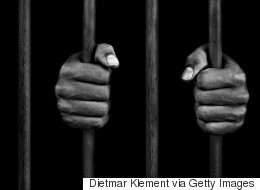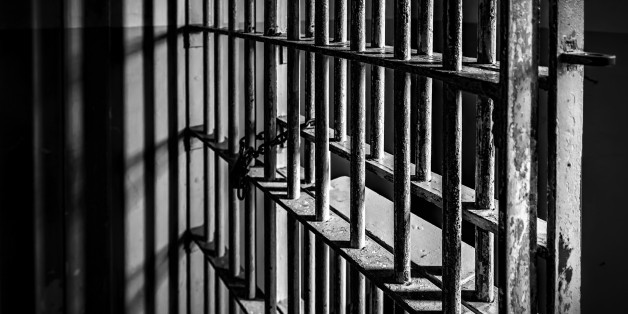[ad_1]

At age eleven Imani’s world would drastically change forever.
“I had just came home from school and the house phone rang.” Her father called to tell her the news she never expected to hear. “He said that he had life and all I could do was drop the phone and cry.”
Young, Black, and fatherless Imani doesn’t differ from most children of color growing up in America. Too many like Imani live in a single parent home raised by women. Most often the men in jail or residing on the streets that surround them. According to the Bureau of Justice Statistics, as of 2013 Black males made up the largest portion of inmates coming in at 37% of the total prison population. A significant number of them fathers leaving behind children impacted psychologically, economically, and socially from their absence.
For most of Imani’s life her father has been in and out of prison. And since 2004, he has been serving a life sentence, due to the Florida 10/20/Life mandate also known as the Three Strikes Rule.
Before that fateful phone call Imani’s memories of her father were few. Imani says even when he wasn’t in jail he didn’t come around much. “I have a picture of when I was with him, when I was a baby,” she says struggling to find the words. Occasionally she recalls them spending time together at her grandmother’s house. But sadly that is where the memories stop.
As an adolescent, she struggled with the pain of not having her father present, “I was always wondering why he wasn’t around, why he wasn’t here, wanting him to be here.” Her father’s absence leaving her with anger and self-esteem issues, affecting her relationship with other men. Often times falling for someone that was similar to her father, “I’ve tried to make myself a ride or die chick, or down ass bitch, knowing I wasn’t that person. Having to bail a man out of jail, I hated doing that. I finally figured that out.” She says seeing how her father treated other women, especially her as his daughter, could have alleviated some of the choices she made in men.
Adding to the difficulty of cultivating a relationship with her father in her youth, was not being able to frequently visit him in prison. “The max times I seen him was ten times. My mom only took me twice. She harbored a lot of pain and hurt [towards my father].”
Eventually, Imani and her father would reconnect, but it was not without work. Imani says that she held on to resentment and had to release the pain she felt over not having any control over her father’s condition. “I felt like I wasn’t going to be there, like he wasn’t there for me. Mentally, I had to change and grow.” While in college Imani and her sister made the decision to go and visit their father on their own.
“I gave him the opportunity to actually be a father.”
Imani came to realize, “I didn’t know how to be a daughter and I’m still learning how to be a daughter. I had to be the one willing to answer the phone [when he called] and go visit.”
Knowing her father is in prison and that he may never be released is the hardest for Imani to grapple. “It hurts, it still hurts. Most of the time I want him there to experience the special moments in my life you.” Like, the fairytale wedding she always imagined, now no one there to walk her down the aisle.
“Part of me hates that he’s in jail. Part of me is happy because he had to get better. Emotionally he is a better parent. He has changed greatly from being in prison. He became a certified minister.” Imani believes if not imprisoned at the time of his conviction her father would have continued being an absentee parent making bad decisions, succumbing to the peer pressure around him, and dieing to self-destruction.
Today at age twenty-seven she states, “He’s like that mosquito in your ear that won’t go away. He helps me build my spiritual life. He gives me wisdom and advice.” He frequently calls Imani taking the time to forge a relationship that previously was non-existent. Prison she says, “has changed our relationship for the best.”
Despite being away from the home he is ever present in the lives of his family. He mediates family conflict and provides a sense of stability for his children. In his non-traditional role as father he manages to keep the family together while being honest, holding everyone accountable for their actions, including himself. Imani and her father’s relationship shows us all the power of parenting beyond parameters, breaking a generational cycle, and marking a definitive change in a family’s previously blighted pattern.
“I don’t think he knew what it meant to be a father, even though he had a family,” Imani says. Her father coming from a long line of men that were abusive, alcoholics, and drug addicts he didn’t have a sense of manhood or fatherhood. And although now he’s learning both of those things from behind bars, he won’t ever let that stop him from being her father.
As a community we must invest in creating open doors for our Black young men and women to have access to their parents in whatever predicament or circumstance they find themselves in. Prison albeit designed to be penile has the possibility of being restorative if we expand our worldview. Too many children like Imani lose a parent not due to death but because of our system, past mistakes, the book of public opinion, and the financial restraints of imprisonment. Therefore, prison like a death sentence to the children they leave behind. Being in prison should not take away anyone’s capacity to instill hope and purpose into the lives of their children. But it’s in our hands and in our hearts to evolve the way we believe fatherhood should be and what it means to parent.
Imani’s story is a part of a series dedicated towards telling authentic stories of Black fatherhood on dominiquemack.com. For privacy purposes the name used in this article has been redacted.
Dominique Mack (@just_dmack) is a writer, counselor, and advocate whose vision is to help people heal through their own stories. She hails from Brunswick, GA and regularly blogs for those finding their way at: http://www.dominiquemack.com/ She can be reached at dmack1012@gmail.com
[ad_2]
Source link





















